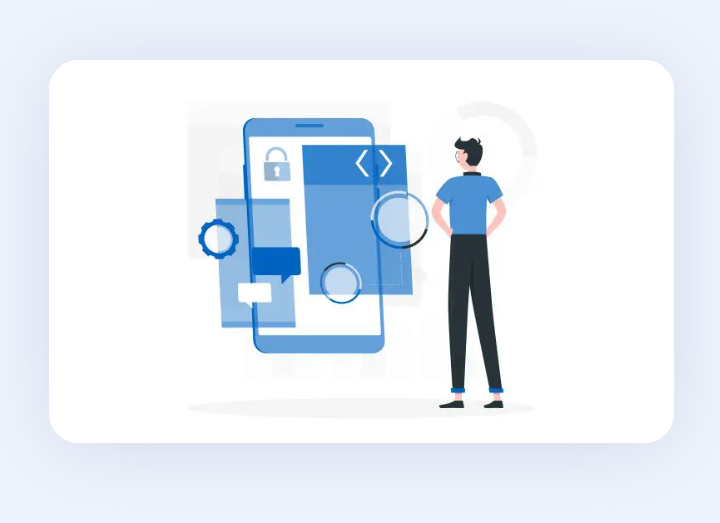The Ultimate Guide to Application Development Outsourcing: Everything You Need to Know

In today's rapidly evolving digital landscape, businesses are constantly seeking innovative ways to streamline their operations, enhance customer experiences, and stay ahead of the competition. One highly effective strategy that many companies are turning to is application development outsourcing. In this comprehensive guide, we'll delve into the ins and outs of application development outsourcing, exploring its benefits, challenges, best practices, and how it can propel your business to new heights.
Understanding Application Development Outsourcing
Before we dive into the intricacies of application development outsourcing, let's start by defining what it actually entails. Application development outsourcing refers to the practice of hiring external resources, often offshore or nearshore, to design, develop, test, and maintain software applications. This approach allows businesses to leverage the expertise of specialized professionals without the need to build an in-house team from scratch.
The Benefits of Outsourcing Application Development
1. Cost Efficiency
Outsourcing application development can significantly reduce costs associated with hiring and maintaining an in-house development team. By outsourcing to regions with lower labor costs, businesses can access top-tier talent at a fraction of the price.
2. Access to Specialized Skills
Partnering with an outsourcing provider gives businesses access to a diverse pool of talent with specialized skills and expertise. Whether it's mobile app development, web development, or enterprise software solutions, outsourcing firms often have professionals who excel in various domains.
3. Faster Time to Market
With outsourcing, businesses can accelerate their development timelines by tapping into the resources and experience of established development teams. This enables faster delivery of products and services, allowing companies to capitalize on market opportunities more swiftly.
4. Focus on Core Competencies
By delegating non-core tasks like application development to external partners, businesses can focus their internal resources and attention on core competencies such as strategic planning, marketing, and customer engagement.
Overcoming Challenges in Application Development Outsourcing
While the benefits of outsourcing application development are substantial, it's essential to address potential challenges to ensure a successful partnership.
1. Communication Barriers
One of the most common challenges in outsourcing is overcoming communication barriers, especially when working with teams in different time zones. Establishing clear communication channels and leveraging collaboration tools can help mitigate this issue.
2. Quality Control
Maintaining quality standards across geographically dispersed teams can be challenging. Implementing robust quality assurance processes and conducting regular reviews and audits are critical for ensuring the quality of outsourced deliverables.
3. Data Security Concerns
Outsourcing involves sharing sensitive business information with third-party vendors, raising concerns about data security and confidentiality. Implementing stringent data protection measures and conducting thorough due diligence when selecting outsourcing partners can help mitigate these risks.
Best Practices for Successful Application Development Outsourcing
To maximize the benefits of outsourcing application development, businesses should adopt the following best practices:
1. Define Clear Objectives and Requirements
Before engaging an outsourcing partner, clearly define your project objectives, requirements, and expectations. Establishing a detailed project scope will help ensure alignment between all stakeholders and minimize misunderstandings down the line.
2. Choose the Right Partner
Selecting the right outsourcing partner is crucial for the success of your project. Evaluate potential partners based on their track record, expertise, cultural fit, and communication capabilities.
3. Foster Open Communication
Effective communication is key to a successful outsourcing partnership. Establish regular communication cadences, leverage collaboration tools, and encourage open dialogue to foster transparency and alignment throughout the project lifecycle.
Conclusion
In conclusion, application development outsourcing offers numerous benefits for businesses looking to accelerate innovation, reduce costs, and stay competitive in today's digital economy. By partnering with experienced outsourcing providers, businesses can access specialized skills, accelerate time to market, and focus on their core competencies while mitigating potential challenges through clear communication, robust quality assurance processes, and careful partner selection. Embracing the best practices outlined in this guide will empower businesses to harness the full potential of application development outsourcing and drive sustainable growth in the digital age.
- Whats New
- Shopping
- Wellness
- Sports
- Theater
- Religion
- Party
- Networking
- Music
- Literature
- Art
- Health
- Jocuri
- Food
- Drinks
- Fitness
- Gardening
- Dance
- Causes
- Film
- Crafts
- Other/General
- Cricket
- Grooming
- Technology

